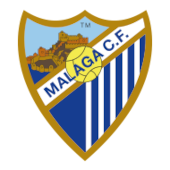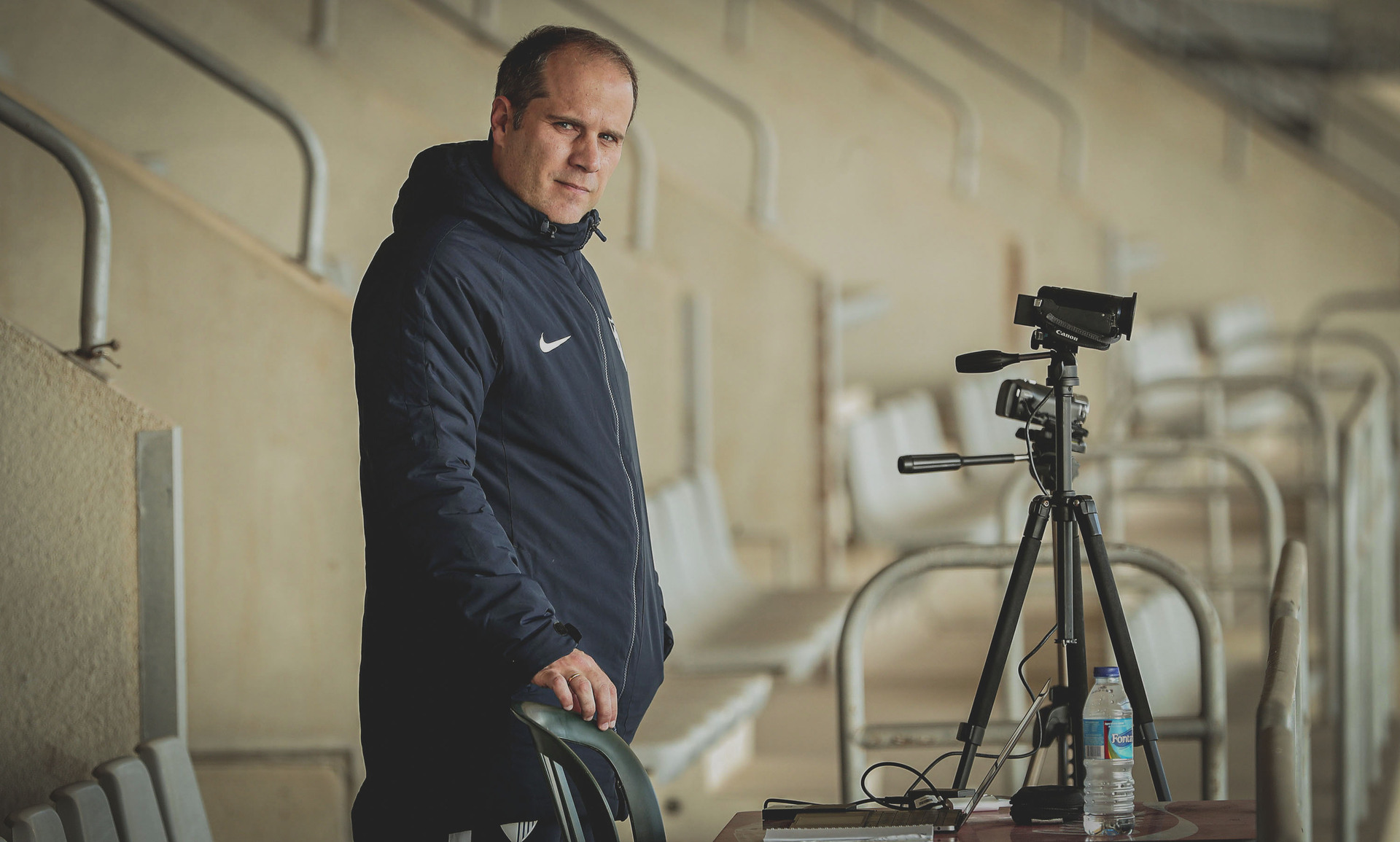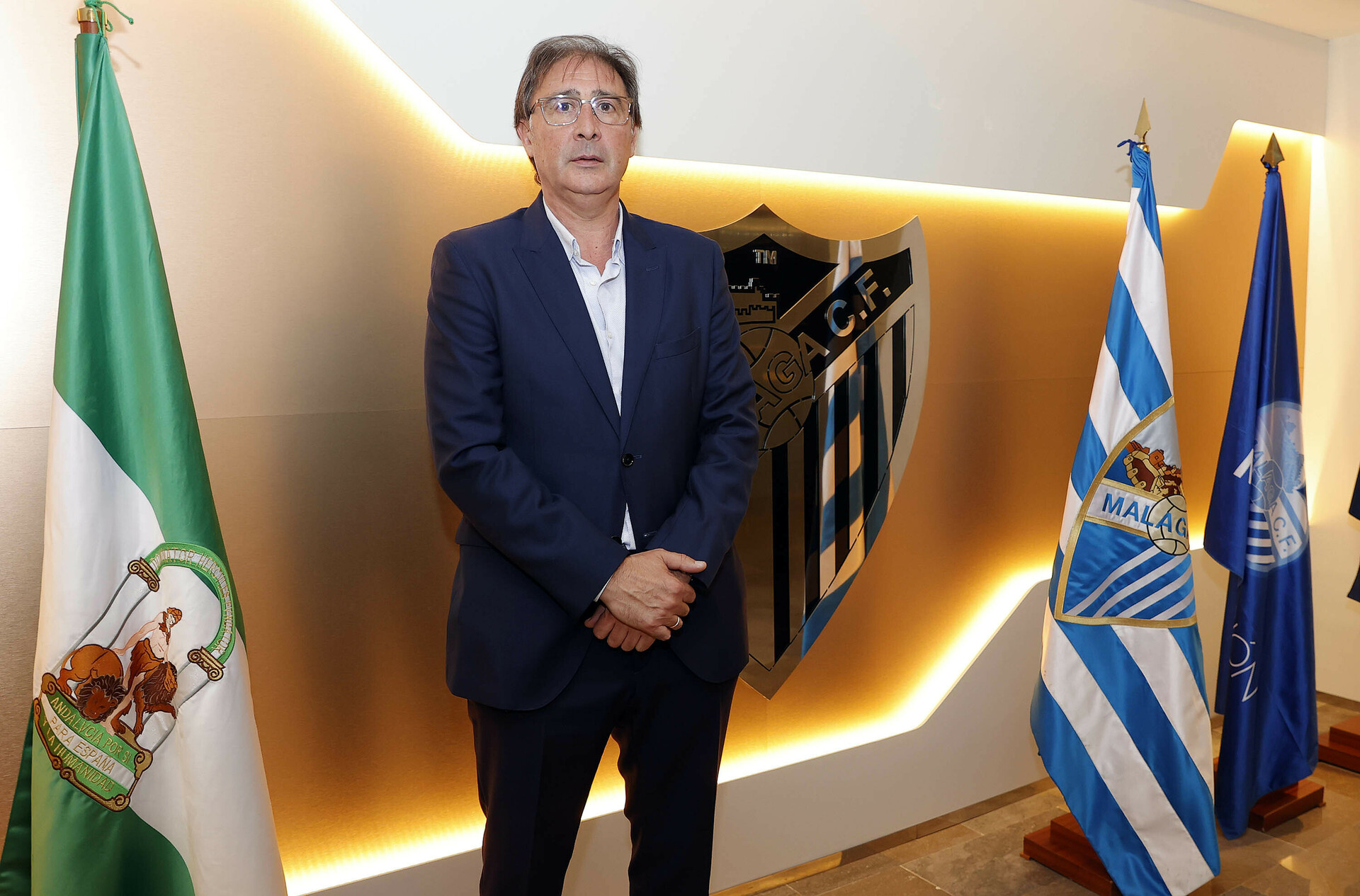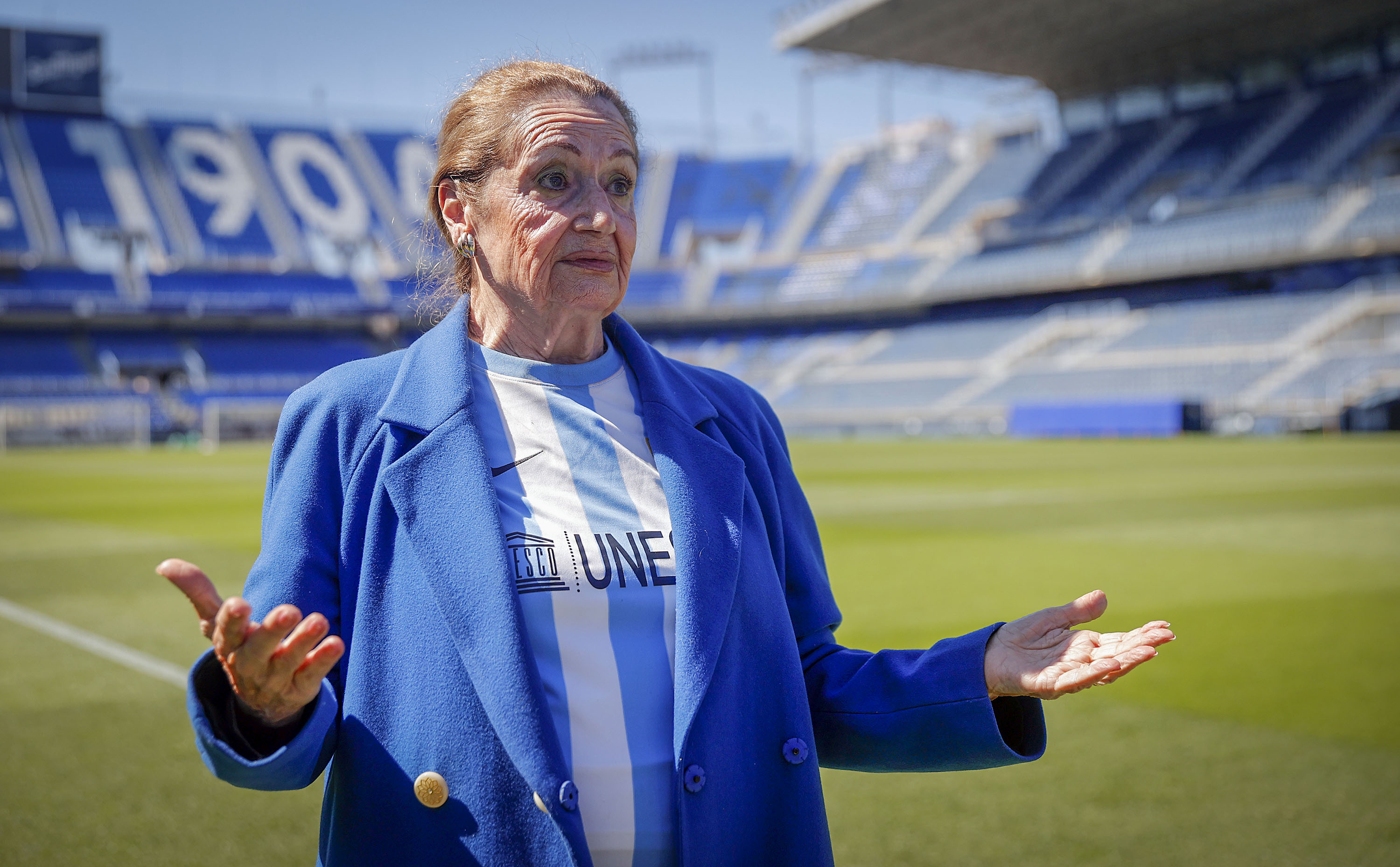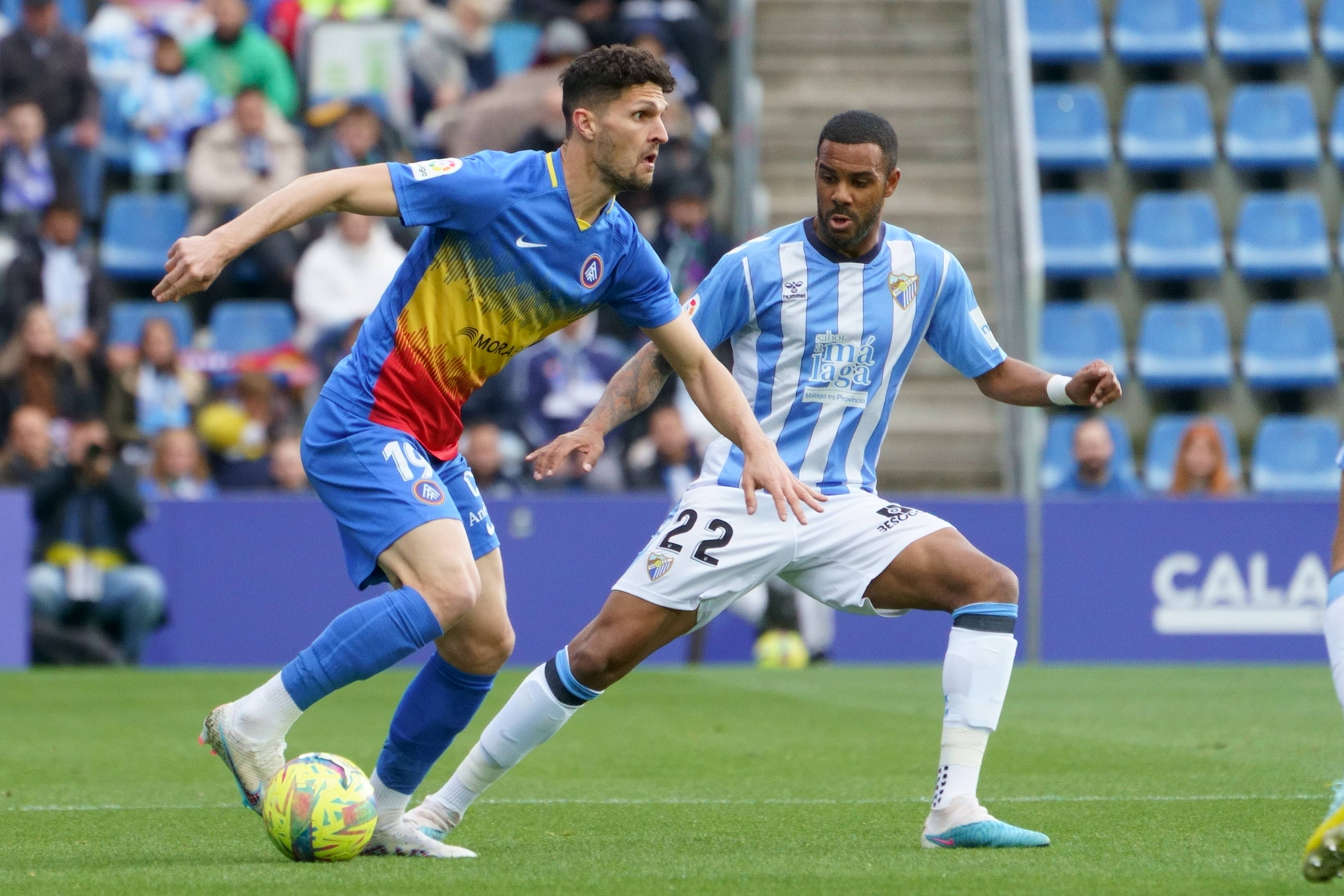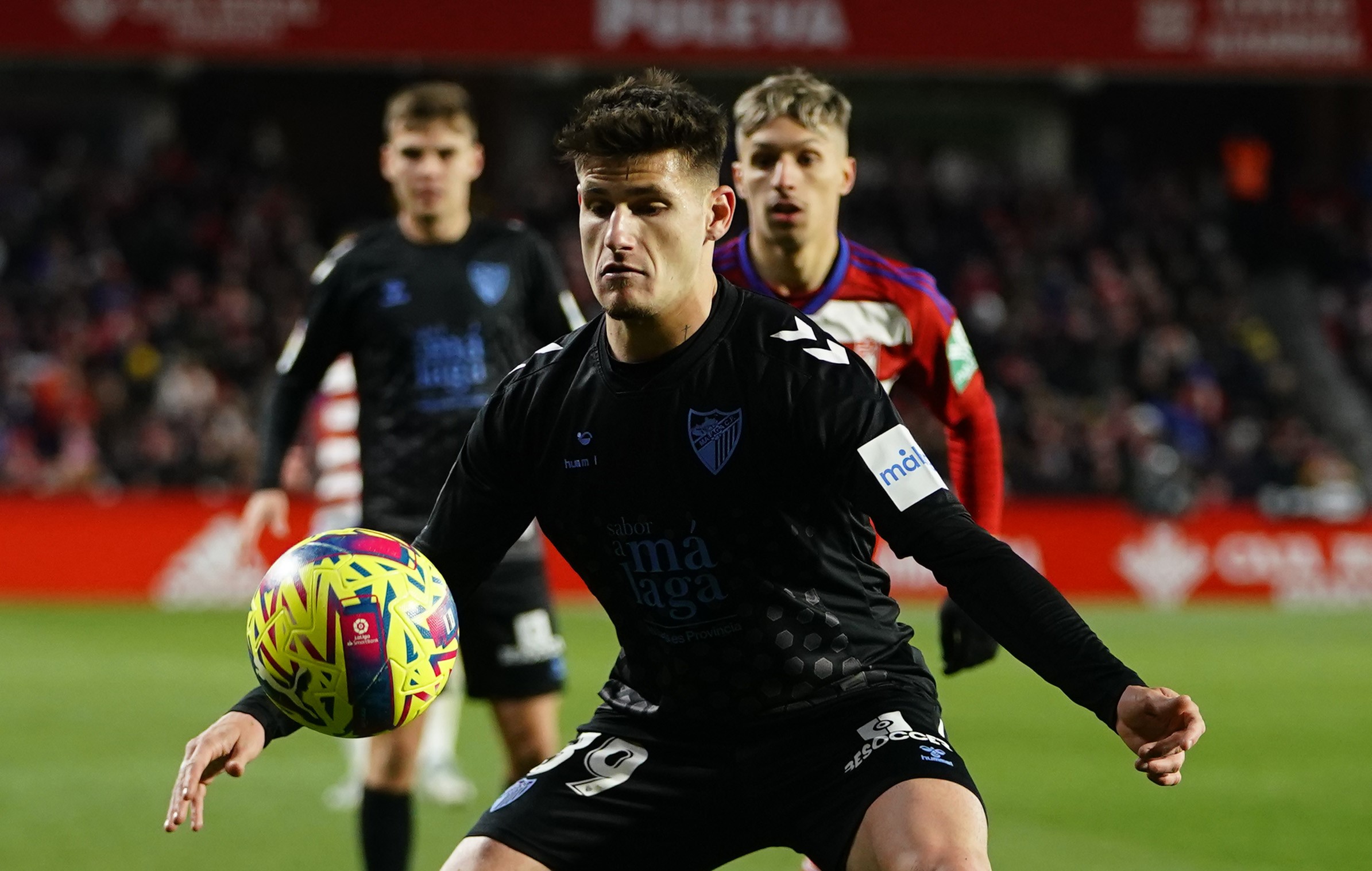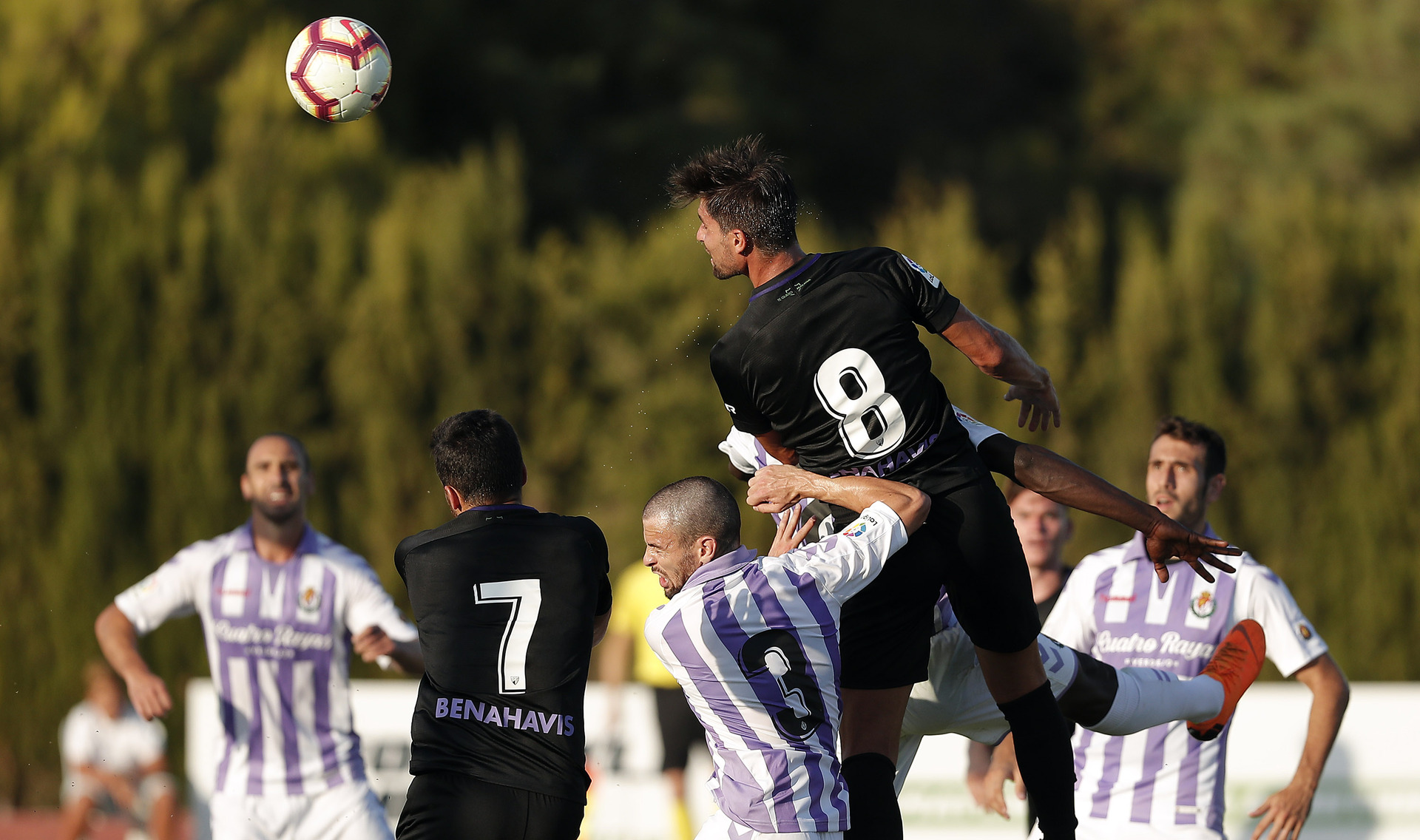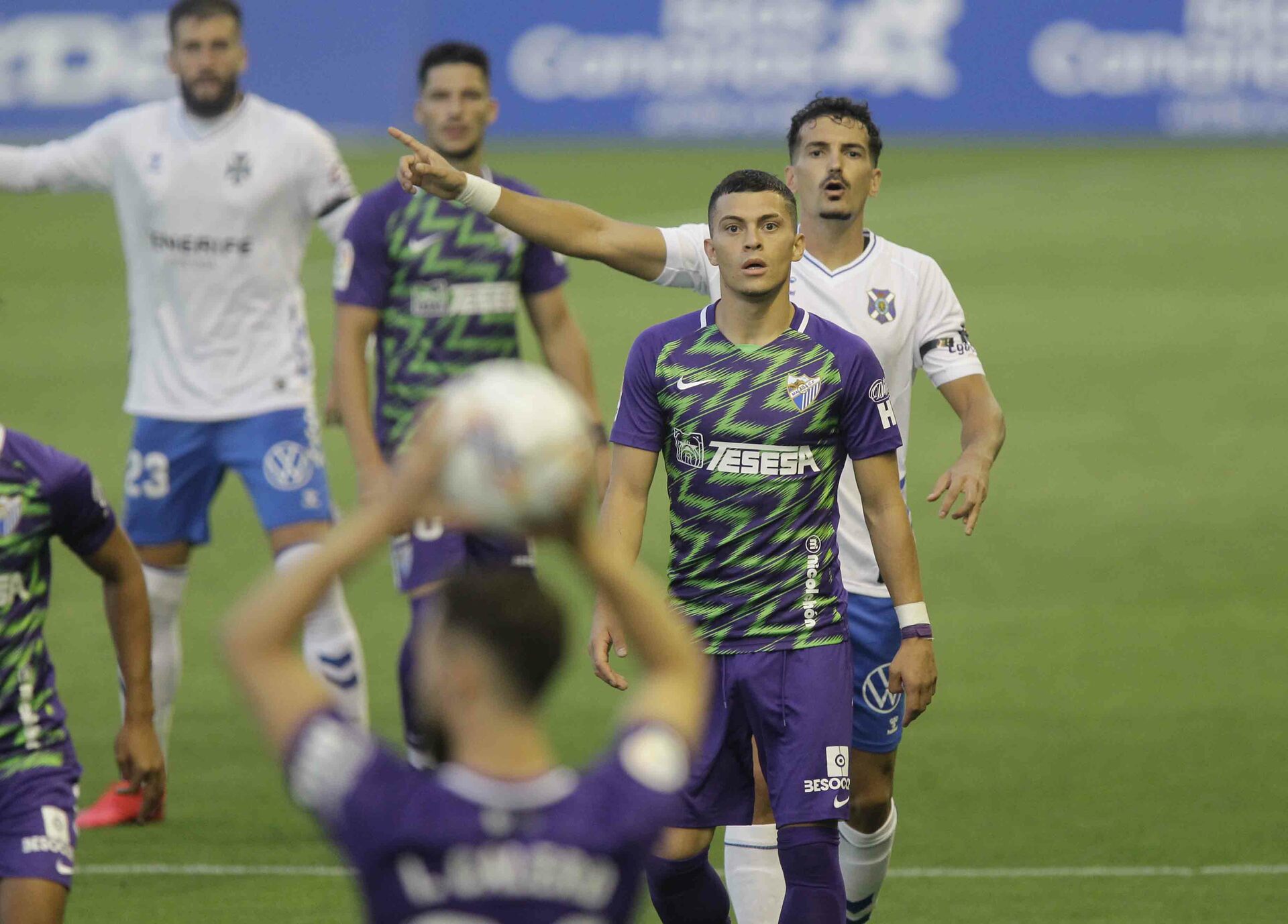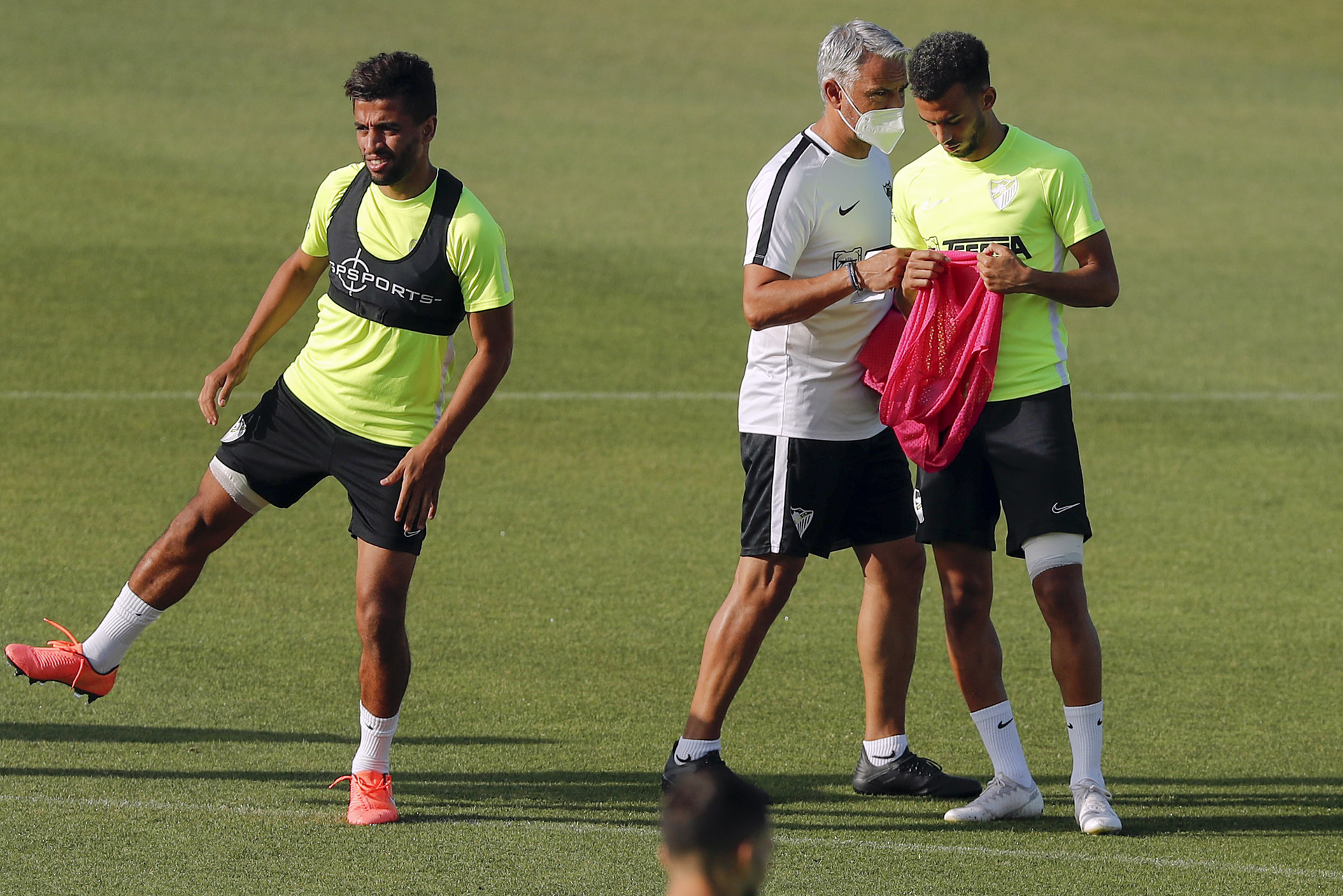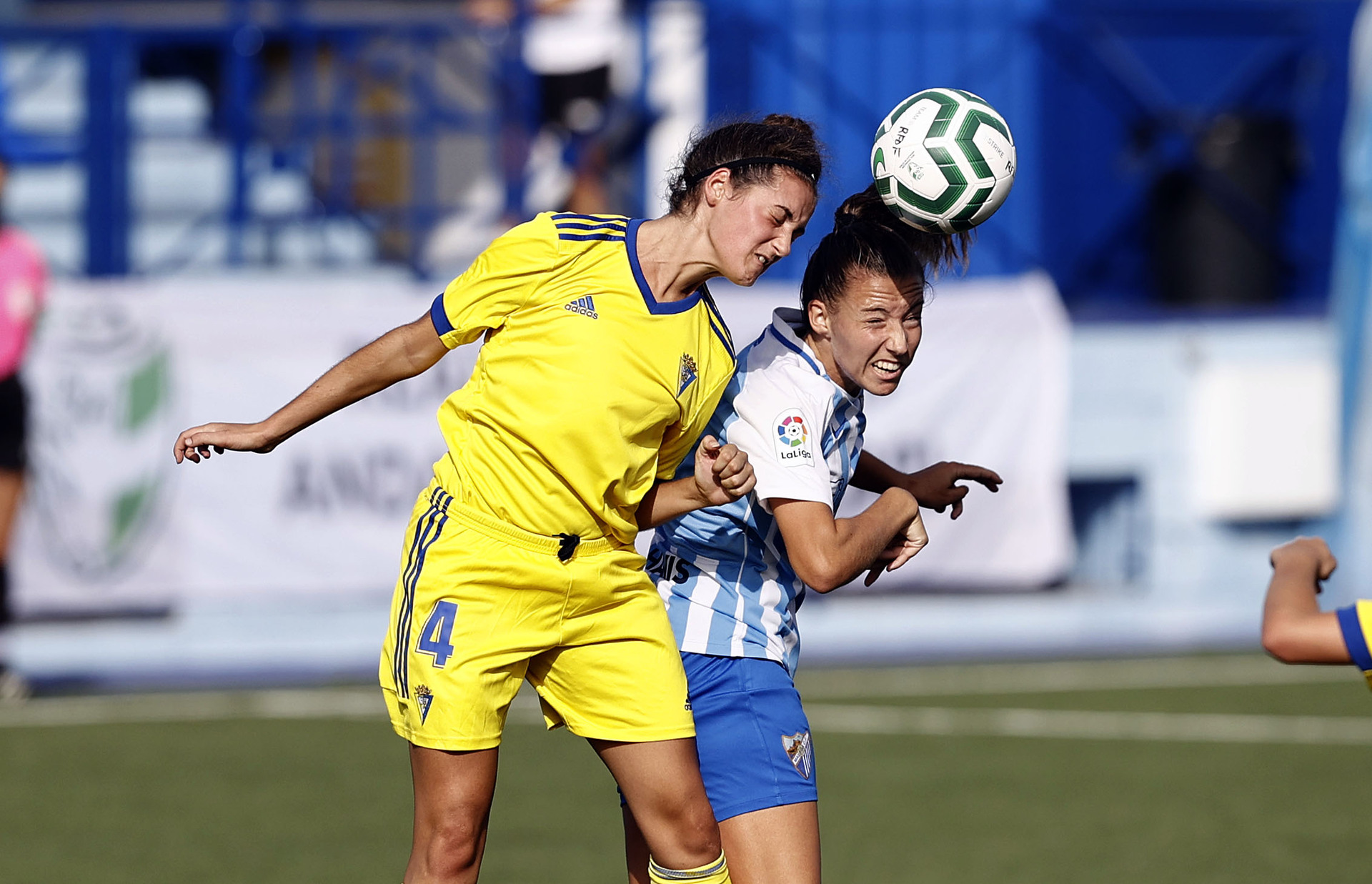José Antonio de la Torre Caparrós ‘Capa’ (Málaga, 1979) is another example of a ‘man of the house’, of which there are many. Here we take a look back to when he was a reserve team player, his time at Atlético de Madrid, his work as an analyst and the more human side of the man in today’s interview.
This is your second season as a first team analyst, but your history with the Club began a long time ago…
I was with Málaga from the age of 14 to 23, with Málaga B. I spent various seasons training with the first team, the odd pre-season, but I didn’t make my debut. I only played friendly games. I was here nearly six seasons. I then left Málaga and played for different clubs in Segunda B until I retired at 30.
Possibly your best memory of being a homegrown player was the promotion to the Second Division with Málaga B as captain, is that right?
I was a player on the team that year when we moved up with Tapia. We started in the Third Division, I had a lengthy contract and it was my last year. I played for many years in the Third Division and forced a little to leave the club as I wasn’t being chosen for the first team. I went to Pontevedra and while there Granada 74 disappeared, and Málaga B went up. Málaga tried to get me to go back. I returned on loan from Pontevedra and we went up. In the end I was unable to stay and returned to Pontevedra. My best memories were certainly at home, it was a spectacular season.
I don’t know if you know but you hold the record as the footballer who has played the most seasons in the current Malaguista reserve team.
I didn’t know that, but I thought I’d be up there. During that time the reserve team needed to move up to Segunda B and a big effort was made over two to three seasons. I had no room in the first team, I tried to leave but they didn’t let me as they wanted the reserve team to achieve promotion. I was here until the age of 23, at my home, at ease and with my team. In just one year we moved from the Third to the Second Division, the pity is I was on loan from Pontevedra and they also pushed for me to return. Málaga had good players in my position and they didn’t sign me again. I moved up quickly, with the reserve team I was an international with the youth teams and with the first year ‘juvenil’ I had already debuted with the reserve team. I spent a lot of seasons here.
You retired from football at a young age. Was it for physical reasons? In addition, we suppose you wanted to stay linked to the world of football in another role?
I retired for several reasons. The last two years I suffered with injury problems at a time when there were substantial financial troubles in Segunda B. I never had any problems not getting paid, but over the last two years I was owed nearly eight and four months. At the time I was also studying. I work with computers by profession, and I had the opportunity to work every morning. This led to me leaving football and working with computers at the age of 30. I passed the three levels of coaching training and my idea was to work in the mornings then in the afternoons I’d spend coaching. I began training ‘juveniles’ in El Palo, the first team moved up to Segunda B and they called me to be second coach. From that point on I got hooked again, the opportunity arose to move to Atlético de Madrid, so I left my job with computers and got back into football.
You returned to Málaga having been with Atlético de Madrid. What was it like working for such a big club? Was your work similar to here?
Rafa Muñoz, the first coach of El Palo, signed to Atlético de Madrid as a scout. I was doing well here, but months later there was a vacancy in the first team as a rival analyst. I did the same there as I do here, the only difference is that there, there are four analysts: three rivals and one for the home team; and the vacancy arose for a rival analyst. I had an interview and got the job. I was in charge of all the first team’s rivals, as I am here. I was there for four seasons (the third as an analyst for the home team). However, my family was at home and the distance became an issue, I was in Madrid and my family here. My wife has her work here and the children were at school. I had the chance to come here and I didn’t think twice. It was an amazing experience, as a rival analyst I saw the best stadiums in Europe and all Atleti’s rivals live. In my last year I travelled directly with the first team.
We recently spoke to Capote and he said he hasn’t stopped, you too right?
There’s been no change for those of us who work on the computer all day. Right now, I have more time to work. Beforehand I would have to record training sessions and do more work as a coach rather than an analyst. We are, on the one hand, anticipating some rivals, preparing things should LaLiga return, which I think it will; and on the other hand, focusing on all the requirements to help the physical trainers with the videos we’ve been uploading, video conferences… The analyst doesn’t just need to know about football, but also be on top of the new technologies. We need to do everything, and during this time, I don’t stop. I’m making the most of this break in competition, we’re also doing things for our own team, although that’s more the coach and second coach, but we don’t just focus on the rivals.
There’s talk of automating the game model so the player can absorb the style required by the coaching team. How do you prepare these specific videos? What aspects do you focus on?
We emphasise on the explanation of what the coach wants of the players, both individually and collectively. Studies of attack and defence are undertaken, by lines, defenders, midfielders and forwards, in attack and defence; as well as individual behaviour in certain situations. Overall, we explain what Pellicer wants from the team in a more visual way, as he would do on the pitch. Now the players have more time, they can watch examples of matches we’ve played, which is ideal.
Your work ‘behind the scenes’ is highly valued. Do you feel that professional respect towards you?
Yes, I feel valued. The figure of analyst is increasingly important. A few years ago, new technologies were not given as much importance as they are now. In addition, I’m back home and I know everyone, equipment mangers, medics… they don’t just treat me as Capa the professional, but also as Capa their friend. I couldn’t be happier, I feel highly valued and respected.
What’s Capa like from a personal point of view? What do you like to do in your spare time away from football?
Aside from being something of a football ‘nerd’, because of my profession, I like to spend a lot of time with my family. I have two children, a boy and a girl, who are teenagers now and this is a good time for us to enjoy a lot of activities together. We play board games, I play the playstation with my son, a bit of everything. I like to practice sport, watch TV, movies, listen to music…
The last question is regarding the current situation. Do you think we’ll be back to normal soon? What do you think?
You become more optimistic as time goes on. In Málaga it looks as though we’re doing things pretty well. It’s a difficult situation that requires time, but hopefully everything will soon get back to normal. In terms of LaLiga, several possibilities are being contemplated. I’m not so optimistic about that, as we need to look after the players. They need to feel safe. Time will tell, but we all need to do everything we can to ensure this situation is resolved as soon as possible. Football is secondary at the moment. The most important thing is this serious situation we’re all in. Many people have lost their lives, football isn’t everything.
